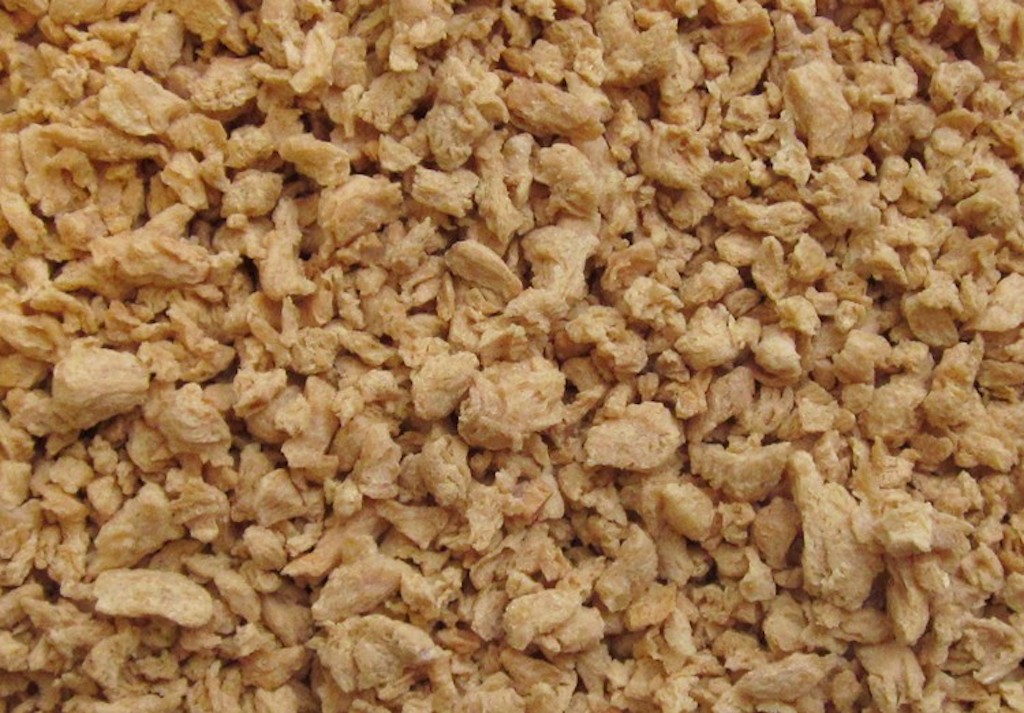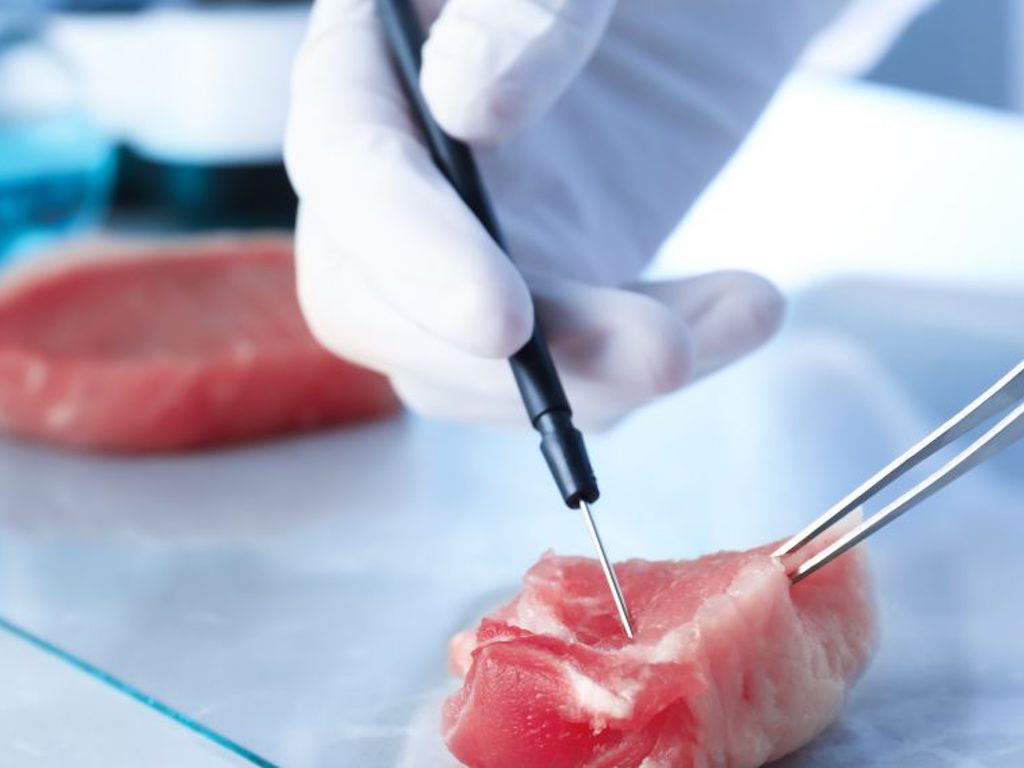4 Mins Read
In a new study, food science researchers have found that textured soy protein, the edible byproduct of extracting soybean oil, can help recreate the texture of a meat bite in lab-grown beef. Prototypes of this new blend of cultured beef have passed initial taste tests by volunteers, who say that it replicates conventional meat. The research findings will help to bridge some of the existing gaps in cell-based protein research, and is a step forward to bring cultivated food to market.
Published in the journal Nature Food, a new study by researchers from the Israel Institute of Technology have found that textured soy protein can create the 3D scaffolding necessary for bovine cells to grow around, creating a beefy muscle tissue that has a similar texture to meat. Cultivated meats need a scaffolding to help mould lab-grown animal cells and muscle tissue into a physical, 3D cut of meat.
The team of scientists cultivated cow’s blood vessel cells and muscle tissue on a spongy layer of soya protein and stimulated growth and maturation in their labs. Once harvested, the team baked and fried small samples of the cultivated meat. Three volunteers who tasted the lab-grown beef sample made with the soy protein scaffolding said that it successfully recapitulated the “sensation and texture of a meat bite”, according to the study.

Prior to this technology, many lab-grown meat developers have used scaffolding derived from beef gelatin, a collagen obtained by boiling animal carcasses leftover in slaughterhouses. The new research overcomes this problem and provides a cruelty-free and slaughter-free alternative to gelatin for the scaffolding – textured soy protein – which is widely available on the market and has been used for years in many vegan and vegetarian meat substitutes.
While cell-based meats have yet to reach mass production and commercialisation, these findings represent a major step forward to help scale-up these products towards market readiness. Alongside plant-based substitutes, which have already become hugely popular amongst consumers globally, cultivated proteins are one of the core food technologies that will help bring about a more sustainable, ethical and safe food system.
Raising livestock for meat and dairy generates around 18% of global greenhouse gas emissions – more than all transportation combined – and uses around 70% of agricultural land, in the process driving destructive practices such as deliberate deforestation, as well as contributing to biodiversity loss and water pollution.
Recently, the Good Food Institute (GFI) awarded US$4 million for research into plant-based and cultivated meat in order to help overcome the challenges that lie ahead to scale-up and improve the alternative protein industry. GFI believes that the alternative meat industry needs more support, innovation, research and development to bring about the food transformation necessary to meet the demands of a rapidly growing global population.
Similar conclusions were made in a recent alternative protein report focused on the industry in Asia. While the Asia Alternative Protein Industry Report 2020 was optimistic about plant-based and cultivated meat development in the region, it emphasised that the emerging food economy needs as much governmental and business support as possible to drive much needed mass consumer change.
With the Chinese and Singaporean government showing increasing support for cultivated food technologies, the report also concluded that the commercial sales of cell-based products will be approved in Asia before similar legislation is passed in the United States and Israel, where cultivated products are also being developed.
Want to know more about Asia’s alternative protein space? Download the first in-depth Asia Alternative Protein Industry Report: New Protein New Decade by Green Queen Media here.
Lead image courtesy of Shutterstock.




